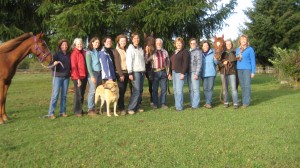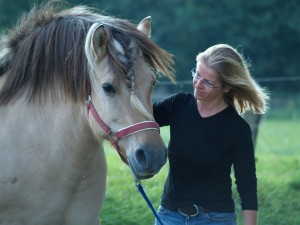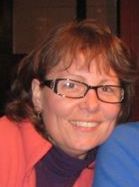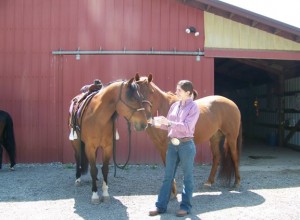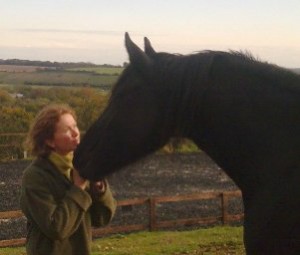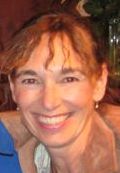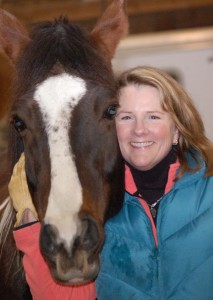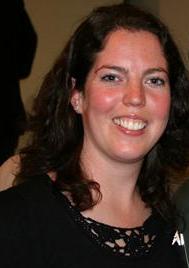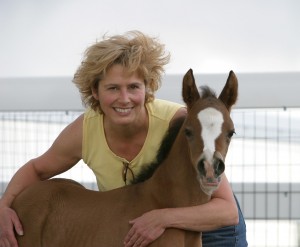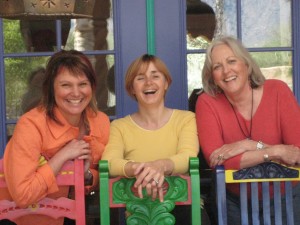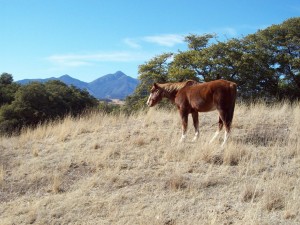Wednesday, January 25, 2012: Coaching From the Heart a FREE Internet ‘Salon’
January 22, 2012 by Kathleen
Coaching From the Heart: A FREE Internet ‘Salon’
Wednesday, January 25, 2012 at 1:00 PM EST
Are You A Coach Who Wants to Create Transformation, then join Lisa Murrell and Kathleen Ingram on for a FREE live streaming internet “salon” called “Coaching From the Heart” on Wednesday, January 25, 2012 at 1:00 PM EST
What is coaching from the heart? A way of connecting with ourselves and our clients that is based upon relationships and recognizes the value of emotions and energy in supporting and guiding those who come to us for coaching –concepts that are inherent horse wisdom and difficult to learn in traditional coaching programs.
Equine Coaches, Simon, Tibor and Spanky will join us as we go deeply into a conversation about:
- The 5 critical elements for transformational coaching
- How the ‘Shadow Self; (those unrecognized and unaccepted aspects of ourselves) hold important wisdom for our coaching and clients.
- Why emotional and energetic agility is THE future of coaching.
- How you can take your coaching to the next level through Equine Assisted coaching!
Your first Salon? A Salon is a gathering of like-minded people under the roof of an inspiring host, held partly to amuse one another and partly to refine taste and increase the knowledge of the participants through conversation and connection.
What is Live Streaming? A very nifty piece of internet technology that will let us interact and engage live- almost like we were together in person – ala ‘salon’. (Don’t worry, if you can open a URL in your web browser, you’ll be able to participate easily and with grace.)
To register for this call visit Lisa’s site: www.EquineAlchemy.com
HEAL 2009 FACILITATOR TRAINING PROGRAM GRADUATES
November 2, 2009 by Kathleen
HEAL 2009 GRADUATES
HUMAN EQUINE ALLIANCE FOR LEARNING
9 Women graduated from the 2009 program and will be presenting the HEAL MODEL™ to a world-wide audience along with the 2008 graduating class. (look under 2008 Class in Events for information about these facilitators). Leigh, Kathleen and David Young are so pleased that the following individuals will be taking the work and facilitating people and horses towards a more fulfilled and satisfying life.
EVA BALZER: Animal Healing & Coaching for Personal Development:Masters Degree in Business Administration GERMANY
Animal Healer: Acupuncture; Osteopathy; Animal Communication; Reiki I & II; Family Therapy
Contact Information: Germany Tel+491722320836;kontakt@evabalzer.de www.evabalzer.de www.zentaura.de
SANDRA BOE: Founder & Program Director, Boots ‘n Breeches Therapeutic Horsemanship; Advanced NARHA Instructor WASHINGTON STATE “As a therapeutic riding instructor, I have seen the amazing transformative power that happens when you connect in relationship with a horse. I have experienced it myself in my own personal journey as I have coped with multiple sclerosis since 1998. I know I am as well as I am because of my work with the horses. As an EFL practioner, I hope to offer the opportunity to engage in healing relationships with our equine partners.”
Contact Information: Tacoma, Washington
sreid@harbonet.com, www.bootsnbreeches.com
MATNEY COOK: TLC Horsemanship: Safe & Gentle coaching for both horses and humans who walk the path towards true connection through self-aware horsemanship. WASHINGTON STATE
“What were dreams for me a year ago are now a rality because of this life changing HEAL program. Not only have I learned the skills that enable me to step into my soul’s purpose, I’ve also gained the confidence to facilitate others on their journey to authenticity. I am so grateful to Leigh and Kathleen for helping me to hear the horses calling and learn to believe in my own magic.”
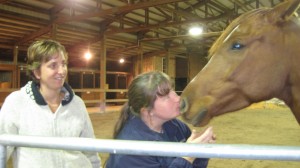
Maaike, Tammy and Tanyka"This year has been life changing. I got to know myself a lot better and I became more whole. I learned to trust my intuition, my body and my inner wisdom. Horses are great healers and I leanred how to facilitate and hold the "sacred place of possibility" for others. I want to share the wisdom of the horse with others. Kathleen and Leigh created a safe place for everybody to open up and bloom. I learned so much and am really thankful for the place and the amazing people.Contact Information: PortugalQuinta do Colaco, PortugalTel: 00351275561538Tel: 00351916100048maaikeinportugal@mac.comwww.howdoyoudo.nlEmma & Charlie
Authentic Horse Human offers EFP/FEEL Training Program
May 13, 2009 by Kathleen
EFP/FEEL Facilitator Training Diploma Incorporating The Epona Approach™ United Kingdom
Facilitated Equine Experiential Learning, FEEL
Instructors: Dr Barbara Murray, Advanced Epona Approved Instructor
Sun Tui, Advanced Epona Approved Instructor
For full Information regarding the FEEL Training Program in the UK
Contact: Sun Tui www.authentichorsehuman.org 044 (0) 1342 822682 cell: 0044 (0) 790 24 6058
Kathleen is teaching during Module 1 and Module 4
Module 1 23rd – 27th August 2009
EFP/FEEL Facilitator Training Foundation Skills
Led by Kathleen Barry Ingram co-creator of The Epona Approach ™
Module 4 Summer 2010
EFP/FEEL Facilitator Integrated Skills Assessment
Led by Kathleen Barry Ingram co-creator of The Epona Approach ™
Equine Facilitated Learning, Psychotherapy, & Coaching: A Comparison
March 1, 2009 by Kathleen
EQUINE FACILITATED LEARNING, PSYCHOTHERAPY, COACHING: A COMPARISON
The field of Equine Facilitated Learning (EFL) has undergone a lot of changes in the recent years. There has been quite a controversy about how to name what we, who co-facilitate with horses in advanced personal development work, actually call ourselves and how we identify what we are doing. The Epona Approach™ and the work I am currently engaged in with Leigh Shambo at Human Equine Alliances for Learning (HEAL) both agree that the horses are our full partners in this endeavor. Their innate knowledge, wisdom, and accurate intuition guide us as human facilitators when we follow their lead and learn from these consummate teachers. Some practitioners/facilitators identify themselves as practicing Equine Experiential Learning (EEL); Equine Facilitated Experiential Learning (EFEL); Facilitated Equine Experiential Learning (FEEL); Equine Facilitated Psychotherapy (EFP) Equine Therapeutic Learning (ETL); Equine Assisted Coaching (EAC), however I refer to what I practice as Equine Facilitated Learning (EFL). The following information is presented to shed some light on the various ways of working, and on what I feel are some of the most important principles and guidelines to follow as we continue this important partnership with the horse.
Psychotherapy Coaching
• Therapy is about uncovering & More about Discovering
Recovering
• Based on the Medical Model Not about disease but about
of dis-ease and diagnosis optimum health
• Examining the past Being in the present
• Looking to therapist for solutions Mutual examination
for emotional concerns
• Helping clients move from a state Assisting people who are highly
of dysfunction to one of being functional but may not be achieving
functional their full personal or professional
potential
• More of a doctor/patient relationship Partnering with clients in a creative
process
Equine Facilitated Learning and the lessons we acquire from interactions with the horses is based on mutual understanding and respect. As professionals in this field we do need to be aware of the clients’ projections and transference involving ourselves and the horses, and our own counter-transference issues. Much of the information in the coaching profession as well as experiential learning has come from traditional psychotherapeutic principles and dynamics.
The pioneering work of Adler and Jung is noted by Patrick Williams, a psychologist for 28 years who moved into the coaching profession and in 1990 helped in the formation of the International Coaching Federation, (ICF). Williams says: “Adler and Jung saw individuals as the creators and artists of their lives and frequently involved their clients in goal setting, life planning, and inventing their future —- all tenets in today’s coaching.” He also points to Carl Rogers work with client-centered therapy as a “significant precursor to coaching”. (Williams, “Counseling Today” December, 2008)
Edward Colozzi, a career development expert and author of the book Creating Careers with Confidence says; “Although coaching has its limitations, its practice harkens back to the times in many cultures when spiritual leaders, shamans, mentors or others in the community offered informational guidance. It is, in a way, a back-to-the-future paradigm shift. A life coach is a mentor—a person who joins us on a journey. Many people have performed that role in the past. But in a society such as ours that starts to have rules and regulations—that may be where counseling was born. Now, perhaps, we are seeing a return to something more basic.” (Colozzi, “Counseling Today” December,2008)
Irvin Yalom, MD, considered by many as the “Father of Group Therapy”, says that with the current crisis in psychotherapy, there will not be enough trained individuals to do the work. “Psychiatry is on the verge of abandoning the field of psychotherapy. Young psychiatrists are forced to specialize in psychopharmacology because third party payers now reimburse for psychotherapy only if it is delivered by low fee (in other words, minimally) trained practitioners.” Even though Yalom is concerned about the current state of affairs, he is confident that a “cohort of therapists coming from a variety of educational disciplines will continue to pursue rigorous post graduate training.
Equine Facilitated Learning can fill some of what is missing in the health care system . Individuals seeking change from old dysfunctional patterns of behavior and automatic responses based on unconscious motivations can find help and assistance through the Way of The Horse. Yalom says, “At its very core, the flow of therapy should be spontaneous, forever following unanticipated river beds” Therapy following a managed care protocol does not allow for spontaneity and reflection. The horses, as our teachers, and co-facilitators demand that we “go with the flow” and therefore, keep the interaction dynamic and in the present moment.
Short Term Dynamic Psychotherapy, an area I studied extensively in post graduate work with one of my mentors, Dr Paul Rosenberg, works with the unconscious forces (the dynamics) of inner conflict by holding a supportive container for clients to experience in the present moment emotions and memories from the past. Much of the material and teaching I developed for educating students of EFL came from the theories behind this approach and the clinical experience of my clients. What I got to see for myself as I engaged more with the horses was that this dynamic was present in many of the sessions I conducted with a client and a horse. The challenge was how to develop a process in experiential learning that held the container present in a psychotherapeutic session. The container suggested in the phrase I call holding the sacred space of possibility was essential in establishing safety for both the client and the horse. Without suspension of judgment and personal desire for an expected outcome, a reflective round pen and any active or passive engagement with the horse becomes more of repeat of old behaviors and attitudes. “I am the expert and thus you and the horse should do this my way.” The facilitator’s understanding of their own unconscious forces or dynamics underlying their thoughts, feelings, actions and behaviors is absolutely necessary for the client and the horse to have a truly creative and innovative equine experience. The Johari Window, the Karpman Trauma/Drama triangle and the thorough study of projection, transference, introjection and countertransference are ways to enhance and support students participating in an EFL training program. If the student is interested, engaged and encouraged to explore these dynamics themselves, they will be far ahead of many who practice equine facilitated learning, equine experiential learning, psychotherapy and/or coaching.
My own personal opinion around the discussion and controversy of whether to use the designation of equine facilitated learning, equine facilitated psychotherapy or equine assisted coaching when describing your practice is simply this, “Know thyself”. I believe if you know your personal style, understand your thought processes and emotions, and are actively and enthusiastically engaged in a relationship with any sentient being, the likelihood of a mutual and successful partnership is possible. The excellent facilitator is a mentor, a truth seeker, a challenger, and most of all someone who guides each person towards personal accountability, integrity, ease, and fulfillment.
Our teachers, mentors, friends and co-facilitators, the horses say “Thanks for listening”.
Kathleen Barry Ingram, MA
Excerpt from “Unexpected Grace: How Horses Changed my Life”
Copyright, 2009
Equine Faciliated Learning: Implicit Knowing versus Explicit Knowledge
November 26, 2008 by Kathleen
EQUINE FACILITATED LEARNING And Implicit Knowing versus Explicit Knowledge
There is, then, both a moral and practical obligation for each of us to look beyond the surface of events…to feel the ground swell underneath the events and perceive the direction they are taking: to perceive the evolutionary trend as it drives social change in our word. “The Choice” by Ervin Laszlo
What does Equine Facilitated Learning have to do with what is called the “Great Turning”? Joanna Macy sees this as “the essential adventure of our time: the shift from the industrial-growth society to a life-sustaining society” which takes into account all of life and nature. Research on how we learn and how much we retain supports what the horses have been teaching us all along. Implicit Knowing which comes from actual experience supports experiential learning, in this case the work with horses. Explicit knowledge, while necessary and important, is not experienced directly but rather through study, education and the experiences of others. If we can take this time to bring forth new dimensions of human intelligence and solidarity among all sentient beings, way beyond anything we now know, then perhaps we can see this as a time of optimism. A time where we can “hold” both the collective nightmare and the collective awakening, the shadow and the light described by James O’Dea, president of the Institute of Noetic Sciences. Peter Russell calls this time a place of integrated “trans-egoic” consciousness.
My experience with horses has demonstrated, without question, these adept facilitators can teach us more about us as sentient beings and also how to traverse the obstacles and challenges we are facing as a species today. Christopher Bache, in “Dark Night, Early Dawn” calls this the “dark night of the species-soul”. Maybe it is time for other species, in this case the horses, to teach us how to live and respect all of nature.
The 3 brain theory: Brain in the head; brain in the heart; and brain in the gut supports the work with horses who have a much larger heart field and gut than humans. In fact, too much thinking and remembering can take us out of the moment without enough brain activity for feeling and experiencing. We now know that intelligence is distributed throughout the body. When you have a direct experience it does not go directly to the brain in the head. The first place it goes is to the neurological networks of the intestinal tract (brain in the gut) and the heart (brain in the heart). If we do not feel our values and or goals, we cannot live them. The brain in the heart actually seeks out new experiences and is open to new possibilities which will intuitively matter to you in your life and work. The brain in your heart “reads” what others feel and measures the coherence and congruence of the other’s feeling state and checks it against its own inner state of coherent values, beliefs, and passions. This is why horses, as prey animals, are so good at measuring the inner state of people, checking them out for any incongruence’s, and responding from their guts and hearts and not from the brain in the head where language can distort and deny what is actually happening.
Many of the people talking about the changes inherent in the shift refer to the heart as the change agent essential to this new paradigm. The Institute of Heartmath, a research organization, has measured the heart’s electromagnetic field which is 60 times greater in amplitude than the electrical activity generated by the brain. Some of their research has involved horses because of their large hearts. Love is at the heart of evolution and the healing source. Spiritual resonance is an energetic resonance coming from the heart and the limbic brain which connects with others in a “unified field” so that when one person sheds the layers of illusion it encourages others to find their true voice and authentic self. It has been found that clarified states of consciousness have a contagious quality. A psychiatrist, Elio Fratterolli, coined the term “affect contagion” where emotions both positive and negative can be “caught” by another person or persons.
Research on the brain in the head and how events, emotions and learning are stored in neural pathways (starting with the brain in the heart and gut) supports the efficacy of Equine Facilitated Learning. The triune brain (in the head) consists of three distinct sub-brains that have separate functions, properties and chemistries. All three of these brains developed in evolutionary history in separate ages. The reptilian brain handles basic bodily functions such as: breathing, heartbeat and swallowing and some animals, snakes for instance, operate singularly from this part of the brain. The limbic brain, the one we will discuss in this essay in length, functions in all mammals to assist them in birthing and caring for their young. The limbic area of the brain is where our ability to relate is felt and stored. The last, but not the most advanced, part of the brain in the neocortical brain which functions in humans and to a lesser extent in mammals to assist in reasoning, writing, language and planning.
The book, “A General Theory of Love” is an excellent source for much of the research on this subject. Some of the information contained in this book about how a therapist’s relationship with a client is the determining factor in long term healing can be applied to how and why equine facilitated learning works. Relationship does affect the revision of these pathways through the processes of limbic resonance, limbic regulation and limbic restructuring.
Look at some of the direct quotes from this book about limbic revision and see if you agree. “The first part of emotional healing is being limbically known [limbic resonance]—–having someone with a keen ear catch your melodic essence…………..a precise seer’s light can still split the night, illuminate treasures long lost, and dissolve many fearsome figures into shadows and dust. (pg. 170)
Limbic regulation happens through relationship. “But people do not learn emotional modulation as they do geometry or the names of state capitals. These concepts are stored in the neocortical brain. People and animals absorb the skill from living in the presence of an adept external modulator [the horses with congruent and authentic facilitators], and they learn it implicitly.”(pg. 171)
Can you see how Equine Facilitated Learning changes an individual’s implicit knowing rather than teaching or explaining a feeling or event through explicit knowledge and why this is more valuable for a lasting and long term change to occur?
“These novel pathways have the initial fragility of spring grass, but they take deep root within an environment that provides simple sustaining limbic nutrients. With enough repetition, the fledging circuits consolidate into novel Attractors. When that happens, identity has changed. The patient (person) is no longer the person he was.” (pg. 179)
Through this work with horses’ new neural pathways in the brain will develop which will eventually become a superhighway replacing the other highway which helped the person to survive but keeps them from thriving. The third stop for nerve impulses, after going to the other two brains (heart and gut), goes to the area of the brain in the head known as the medulla located in the limbic or feeling brain. The medulla is a vital link with the RAS, reticular activating system, which has evolved over millennia with an inherent tendency to magnify negative incoming messages, like fear, and minimize positive ones. Information coming through the RAS goes quickly up to the neocortical brain and assists in making the decision to fight, flee or freeze. This was needed in the Stone Age to protect us from danger which helped us to survive as a species. However, to thrive we need to be able to differentiate between actual outside fear and vulnerability. Vulnerability is an” inside feeling” which feels the same as fear, but has a very different message usually having to do with change or a challenge. Sometimes it is the more positive feelings which seem the most threatening. This work can offer an individual a “corrective emotional experience” when the stimulus (the feeling) is familiar but the response and outcome is different. It does take some time for a new neural pathway to develop; however, the good news is that adult human brains have enough plasticity to do this.
The neocortical brain collects facts: new facts and new paradigms can change existing facts quickly. The limbic brain does not change quickly; however, continued exposure to another mammal (us or the horse) can restructure the limbic brain of another person. I see this as evidence as to why “talk therapy”, self-help books, and traditional cognitive/behavioral techniques can only affect the part of the brain that reasons, plots, speaks, writes, plans and records. The neocortical brain is not the most advanced of the three brains but only the most recent. Again from a “General Theory of Love, “Evolution is a kaleidoscope, not a pyramid: the shapes and variety of species are constantly shifting, but there is no basis for assigning supremacy, no pinnacle toward which the system is moving……We are free to label ourselves the end product of evolution not because it is so, but because we exist now.” (pg. 31) They suggest that we expunge our temperocentrist bias. Our work with the horses demonstrates this. Our teachers are these magnificent mammals who have a much larger limbic systems and smaller neocortical brains.
Here is one of the best descriptions I have seen of what I call”holding the sacred space of possibility”: that space in-between words and doing where a container of support to be is created that is fully engaged, not tied to the story, and is open to “what is happening in the moment”. Horses and other animals do this naturally. “The therapist who cannot engage in this open adventure of exploration will fail to grasp the other’s essence. His every preconception about how a person should feel risks misleading him as to how a person does feel. When he stops sensing with his limbic brain, a therapist is fatally apt to substitute inference for resonance. Therapists prone to surrender limbic vision come from schools that offer cookie-cutter solutions.” (pg. 183, A General Theory of Love)
In conclusion, equine facilitated learning can and does transform the client’s limbic brain which takes much more repetition than does the “quick fix” of most brief therapies which address only the neocortical brain. The neocortical brain can rapidly change didactic information but without the whole body, the brain in the heart and the gut; only ones’ thoughts and information change. This, in my opinion, is why so many people “understand” why they might do “such and such” differently and still go about life unconsciously without full engagement and lasting results. When all 3 brains are in agreement and the person is living from a conscious place, life becomes a symphony with each day bringing new challenges, joys and sorrows. All of nature and the animals are calling us, reaching out to us, and saying: We are and have always been ready to teach, support and guide you with our innate wisdom.
Excerpt from “Unexpected Grace”
Copyright, 2008
Kathleen Barry Ingram
Resources:
Institute of Heartmath www.heartmath.com
Institute of Noetic Sciences www.noetic.org
“Healing the Soul in the Age of the Brain” Elio Frattarolli M.D.
“Dark Night, Early Dawn” Christopher M. Bache
“The Mystery of 2012” Sounds True, Inc.
“A General Theory of Love” Thomas Lewis, M.D., Fari Amini, M.D., and Richard Lannon, M.D.
“The Other 90%” Robert K. Cooper
“Quantum Shift in the Global Brain” Ervin Laszlo
“The Global Brain, Waking in Time” Peter Russell
“The Great Turning as Compass and Lens” Joanna Macy (The Mystery of 2012)
